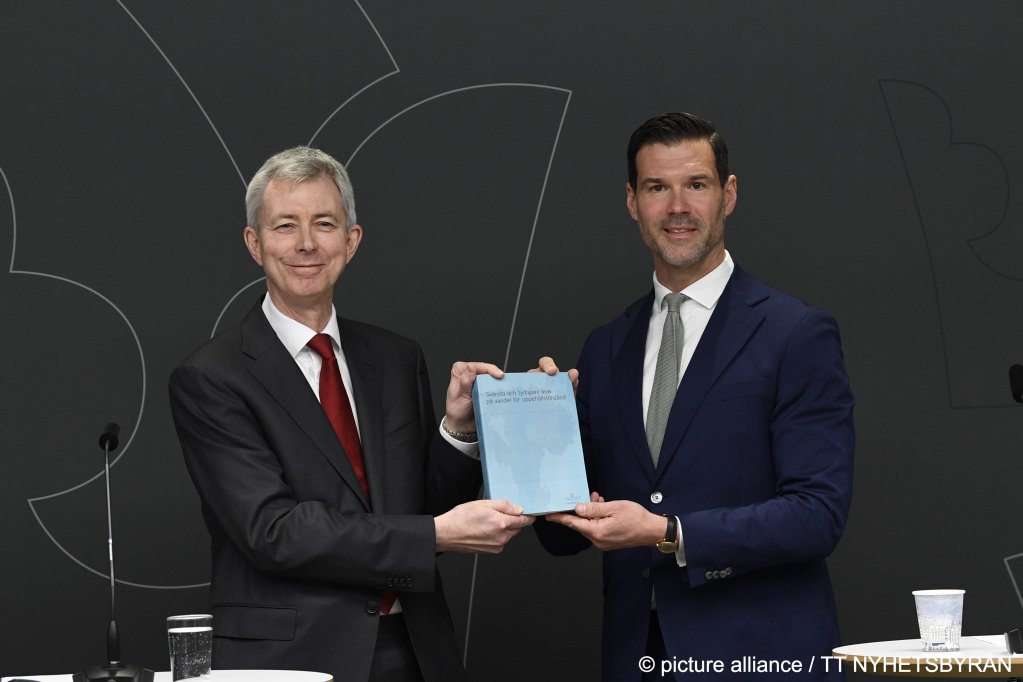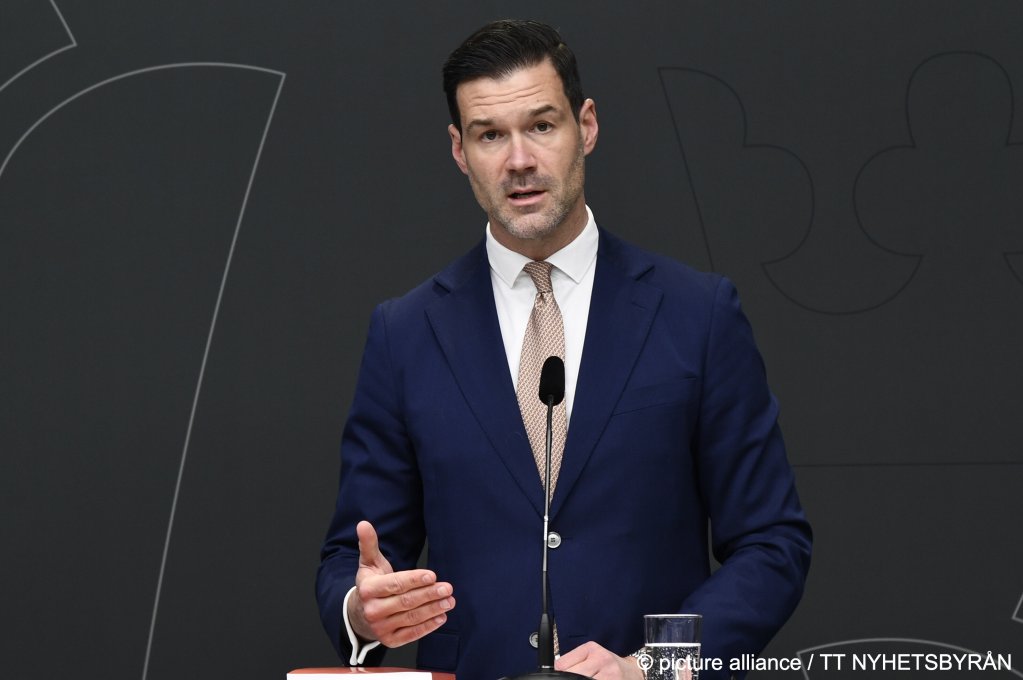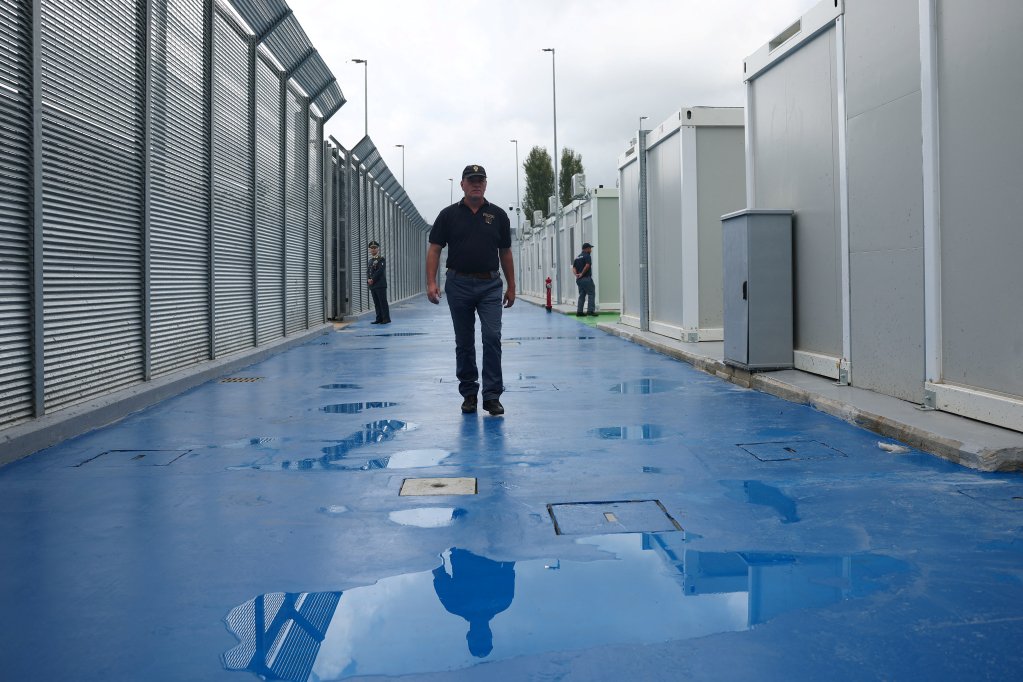The Swedish government announced on Tuesday that it plans to push ahead with a new migration bill, designed to toughen requirements for migrants in the country. The bill includes measures to sanction migrants who commit crimes and transgressions, including social benefit fraud or public order disruptions.
In 2023, the Swedish government, led by Prime Minister Ulf Kristersson, tasked a former judge, Robert Schott, with investigating the legality of a set of proposed new rules, summed up in an "honest living" migration bill, reported Sweden’s public service television SVT Nyheter. Schott presented his report on Tuesday, April 1.
The same day, the Swedish government announced that it was going to push ahead with its new requirements. If passed, the bill will ask migrants to adhere to the rules of "honest living," or face deportation.
Sweden’s center-right minority government is dependent on the anti-migrant Sweden Democratic party for support in implementing its policies. Since it came to power in 2022, the government has introduced several measures designed to get tougher on migration.
Read AlsoNordic nations change immigration approaches to reflect current policy trends
'Poor conduct' could mean ejection
At a press conference announcing the new proposals, Migration Minister Johan Forssell said, "the vast majority of people who come to Sweden are perfectly honest, they simply want a better life, for themselves, for their families. They want to work, do the right thing, learn the Swedish language, become part of our country," reported the French news agency Agence France Presse (AFP).

However, Forssell added: "We also live in an era where citizens' trust in immigration policy rests on a very fundamental principle, namely that those who come to Sweden and commit crimes, or who behave badly I another way, these people should not be here."
On the Swedish government website, a press release states that "poor conduct" can include "if an individual has debts to individuals or the public," if they have "not complied with a decision by an authority and has therefore been fined," "has repeatedly committed minor crimes, misused the welfare system," or if someone is deemed to be a "security threat."
A residence permit could also potentially be revoked under the new proposals, "if someone other than the foreigner, for example, a relative or employer, has knowingly provided incorrect information." The government says it is also proposing to remove the time limits on revoking a residence permit.
Read AlsoSweden plans to offer increased cash incentives for voluntary returns from 2026
'Honest living'
Schott’s report introduces the idea of "honest living" as a requirement for all foreign-born residents in Sweden. According to the news agency AFP, the measures would mainly target students, those with work permits and their families, and would enable authorities to measure whether or not someone was adhering to the rules. If they were found not to be following the guidelines, residence permits could be denied or even revoked.
These new regulations would not just target those convicted of committing serious crimes, but also those who had committed "transgressions" like social benefits fraud, racking up too much debt, public order disruptions, including drug addiction, or the "glorification of terrorism or other statements that ‘threaten the security’ of Sweden," explained Forssell.
Put simply, the migration minister underlined that "legislation will be stricter for this group of people who are not Swedish citizens."
Rights groups in the country have criticized the proposed bill. "This would create a system where some individuals could be punished for expressing opinions that remain entirely legal for others –where certain groups receive a more limited freedom of expression than others," declared John Stauffer, legal director for the human rights group Civil Rights Defenders.
According to a Google translation of articles from the Swedish daily newspaper Svenska Dagbladet, Forssell believes that "if you misbehave, you shouldn’t be in Sweden."
Read AlsoPeople leaving Sweden will exceed immigrants in 2024
'Paradigm shift' in migration policy
Some of the findings from Schott’s report were made public four days ago in the Svenska Dagbladet. If the government gets its way, this requirement for good conduct will be introduced into the Aliens Act, reported the Svenska Dagbladet.
Legislative amendments, if passed, would enter into force on July 1, 2026 confirmed a government press release.
On Sweden’s Migration Ministry website, the government states it is carrying out a "paradigm shift with a migration policy that is responsible and sustainable in the long term." It says that it wants Sweden to "redirect its focus from being a country for asylum immigration to now being a country for labor immigration."

In the future, the Swedish government says it will continue to try and attract foreign experts, researchers and talents to "strengthen Swedish competitiveness and Sweden’s status as a research nation," but it will try and reduce "asylum immigration." It also wants to improve integration overall.
In January, the government stated that "extensive immigration in recent years has caused major strains on our society. Integration problems now impact most policy areas." In August 2024, it was reported that the number of emigrants would exceed the numbers coming into Sweden during that year, and that 2024 marked a "significant drop in asylum applications" to the country, too.
It believes that better integration will allow people to take advantage of the "fantastic opportunities and conditions" that Sweden offers. The government says that it is not important where you come from, but rather your will "to be part of Swedish communities and what you are working towards."
Being part of those communities, the government says, involves learning the Swedish language, being "self-sufficient," and carrying out the "rights and duties associated with citizenship, and respect for Swedish rules, norms and values."
Read AlsoSwedish emigrants to outnumber immigrants for first time in 50 years
'Respect democratic values and live honorably'
The government said at the time that anyone coming to Sweden "must respect our democratic values and live honorably." In order to preserve what they believe is an "open and free society," the Swedish government wants to make the "expectations and requirements" to become part of that society "clearer and stricter."
Anyone who does not want to become part of the Swedish community "should not come to Sweden," states the government.
Forssell says that the government wants to demonstrate that in the future, there will be "clear consequences for cheating and abuse." The government is also proposing that the Swedish Migration Board will be given "increased access" to relevant information, "so that proposals can have an effective impact in practice."
Read AlsoSweden: Tougher rules for family reunification as part of political pact with right
Sending migrants to Albania, in collaboration with Italy?
At the end of March, Forssell met with Italy’s Interior Minister Matteo Piantedosi in Rome while on a visit to Italy. According to online Swedish news channel Nyheter24 the meeting was "primarily to talk about Italy’s plan to house migrants in Albania instead of on Italian soil." The minister posted an article about his talks on March 28 on the social media platform X.
Forssell reportedly told the press that his government was interested in "similar solutions" and does not rule out that the Italian centers could also be used by Sweden.
Forssell is reported to have told the news agency TT by phone that "if the Italians have the opportunity to let more countries participate, it is clear that it could be interesting for Sweden."

The minister added that final decisions would "depend on Italian capacity, how many places they have, how many return cases they themselves have and what could be available," reported TT. Forssell promised to "follow up" on the idea at a later date.
In October 2024, the news agency Reuters reported that the Italian center in Gjader, Albania has capacity for around 3,000 migrants. However, back then, different parts of the center were designated for different uses. For Italy to use the centers as a return hub, some parts of the accommodation would have to be changed to conform to the norms for the new proposed uses.
